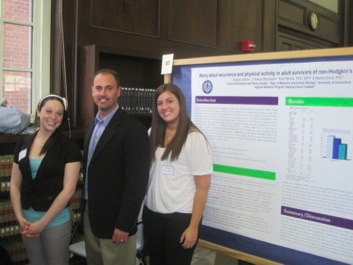Early detection and better treatment modalities have led to a sharp rise in the numbers of cancer survivors in the United States and other developed countries. In 2019, the estimated number of cancer survivors in the United States was 16.9 million, and the prevalence of those living with or beyond cancer grows by more than a million each year. Many individuals diagnosed with cancer today will live with the disease for decades after diagnosis. As a result, many forms of cancer are now joining the ranks of other chronic diseases. These advances, nonetheless, raise important issues of what life ‘with cancer’ or “after cancer” is like for individuals and their families and how to help them lead optimal lives following a diagnosis.
Our research program is dedicated to better understanding the cancer survivorship experience of individuals and families across the entire life course from children and young adults to older individuals with cancer.
Foci of our current research program include but are not limited to issues such as
- Resilience trajectories and outcomes
- Health behaviors and quality of life
- Cancer and aging (accelerated aging, geriatric assessment)
- Communication about intimacy among heterosexual and LGBTQ+ adults with cancer
- Social determinants of health influences on cancer survivorship
- Cross-cultural comparisons of cancer survivorship in the U.S. and Nigeria
Training and mentoring graduate and undergraduate students is a critical part of our program and obligation to the field. We currently have several funded graduate students working in our cancer survivorship research laboratory and undergraduate students from across the University e.g., (HDFS, Psychology, Molecular and Cell Biology, Nursing, Public Health) enrolled in our cancer survivorship research practica. Our graduate students serve critical roles in our research, ranging from managing projects to supervising undergraduates and engaging in data collection, analysis and write up of results for presentations and publications. They also carry out their own research with supervision and support from the many experts in our program. Undergraduate students receive hands-on experience in different phases of research, including literature reviews, study design and implementation, questionnaire development, statistical analyses, and dissemination, such as manuscript preparation and conference presentations. Both undergraduate and graduate students are co-presenters at national scientific conferences and co-authors on many of our recent publications.

